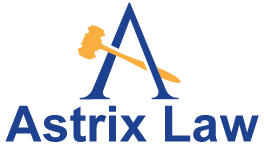FAQS
Personal injury law covers legal cases where someone is harmed due to another person’s negligence, recklessness, or intentional act. It includes injuries from car accidents, slip and falls, workplace incidents, defective products, medical malpractice, and more. The goal is to help injured victims recover compensation for their damages.
You should consider hiring an attorney as soon as possible after your injury. A lawyer can guide you through filing claims, dealing with insurance companies, gathering evidence, and negotiating settlements. Early legal support improves your chances of receiving fair compensation.
Personal injury lawyers handle a wide range of cases, including auto accidents, bicycle accidents, trucking collisions, slip and falls, workplace injuries, medical malpractice, dog bites, catastrophic injuries, wrongful death, nursing home abuse, sports injuries, and product liability.
Fault is established by proving negligence or wrongdoing. This involves showing that the responsible party had a duty to act safely, breached that duty, and caused your injury as a direct result. Evidence can include police reports, witness statements, medical records, and expert testimony.
Compensation can include medical expenses, lost wages, pain and suffering, emotional distress, property damage, rehabilitation costs, and in some cases, punitive damages. For catastrophic injuries or wrongful death, compensation may also cover long-term care and loss of companionship.
Yes. Slip and fall cases fall under premises liability law, which holds property owners responsible if unsafe conditions like wet floors or poor lighting cause your injury. To win, you must show the owner knew or should have known about the hazard and failed to address it.
Depending on your state’s laws, you may still be able to recover compensation even if you are partially at fault. Some states follow comparative negligence rules, which reduce your compensation by your percentage of fault.
Seek medical attention right away, document the incident and your injuries, gather contact information of witnesses, and report the injury to the appropriate parties (employer, property owner, or police). Avoid giving recorded statements to insurance companies without legal advice.
This varies by state and type of case but is generally governed by a statute of limitations. It’s important to act quickly because missing the deadline can bar you from recovering compensation.
Catastrophic injuries often involve permanent disability and long-term care, requiring detailed medical evidence and future cost estimates. Multiple parties may share liability, making investigations and negotiations more complicated.
Yes. Product liability cases hold manufacturers, distributors, and sellers accountable for injuries caused by design flaws, manufacturing defects, or inadequate warnings. These cases often require expert analysis to prove the product was unsafe.
Insurance companies often try to minimize payouts. An attorney will handle all communications, negotiate on your behalf, and ensure your claim is valued fairly based on your full damages.
Wrongful death claims are filed by surviving family members when a loved one dies due to someone else’s negligence or intentional act. Compensation can cover funeral costs, lost income, emotional pain, and loss of companionship.
The process typically includes an initial consultation, investigation, filing claims or lawsuits, discovery (exchange of evidence), negotiations or settlement talks, and possibly a trial. Your attorney will guide you through each step.
SCHEDULE A FREE
CONFIDENTIAL CASE EVALUATION
FREE CONSULTATION
Goldenblatt Law Firm SRA ref 669401. Calls may be recorded for quality and training purposes.
Copyright © Goldenblatt 2019
OUR LOCATION
This website contains Attorney Advertising and is designed for informational purposes only. Any information obtained should not be construed to be formal legal advice nor the formation of a lawyer/client relationship. Prior results do not guarantee a similar outcome.
Copyright © Astrix Law 2025 | FAQ’s | Privacy Policy
This website is for informational purposes only and does not constitute legal advice. Viewing this site or contacting us does not create an attorney-client relationship.
Copyright © Astrix Law 2026


